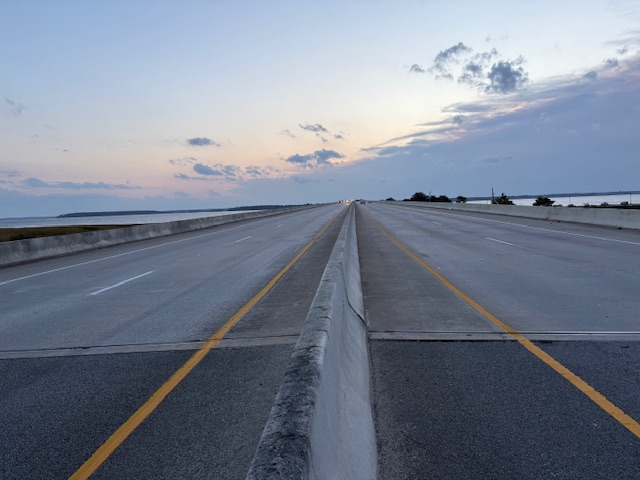By Bill Rauch
The recent fiasco that was the second reading of the Pepper Hall development agreement reminds us again that just because Beaufort County buys land using Rural and Critical Lands money doesn’t mean the land will be forever wild.
Hardly.
The public may think so, but it is not so.
Of the 24,000 acres that have been purchased all or in part using Rural and Critical Lands monies, according to the county’s website, about 10,000 acres are unencumbered by a conservation or other restrictive easement.
The 2015 proposed Lobeco Gun Park is a reminder of the liberties a majority of the County Council might take on land that is owned fee simple. Then in 2016, albeit briefly, at New Riverside near Palmetto Bluff, the county council’s gun park advocates were back with a gun park proposal for that county-owned fee simple land, too.
But the recent Pepper Hall proposal is by far the most shocking affront to the referendum voters’ intentions.
Interesting how the special interests save their most outlandish proposals for right after the Rural and Critical Lands referenda election results are certified, isn’t it?
Here’s the story.
After a lengthy negotiation it was finally decided in 2014 that Beaufort County would use Rural and Critical Lands money to purchase 18 high-ground acres along the headwaters of the Okatie River from Robert Graves, whose family has owned the Pepper Hall property for several generations. The 18 acres are a buffer strip along the marsh.
The land was purchased to protect the river. It was not purchased with recreation in mind. This is abundantly clear because whether of not there is even an easement that might one day be used for public access to the land is an open question.
But then the next obvious step was not taken: The County Council didn’t put a protective easement or deed restriction on the 18 acres. We will probably never know exactly why.
Last year Robert Graves returned to the county with a proposal to develop the 84 acres of his portion of the old family land that surrounds the 18 acres. Again, negotiations with the county’s Development Agreement Subcommittee (Chairman Brian Flewelling, Councilmen Jerry Stewart and Michael E. Covert) were protracted. In fact they were so protracted that the development agreement wasn’t finalized for first reading, and second reading had to be revoted on Nov. 28 because the deal was still changing.
To be sure, the subcommittee and the developer were caught in a squeeze: They couldn’t announce the deal until after the Rural and Critical Lands referendum results were in, but they wanted to be sure to get their deal voted in before the new council was seated. So time was, and is, of the essence.
Pressing ahead, finally at the second reading of second reading the public was allowed to see what the Development Agreement Subcommittee and the developer had cooked up.
Here are a couple of the highlights — and, by the way, this is formally where the deal stands today because it was passed on a 6-4 vote on Nov. 28.
The county will pony up $2 million for roads that will provide access to the 18 acres. Why is such access suddenly so valuable? Because what was once a wetlands buffer is under the proposed development agreement to become a park, which will as a practical matter be the private park of the 2,000 new residential units that will be built around it.
Is that in the river’s best interest?
The environmental community says, “No way.”
Is it worth it to the taxpayers?
Hardly.
But hold on. There’s more.
The Development Agreement Subcommittee agreed also to pay for half of the development’s stormwater costs, and some of the “stormwater improvements” will be handled on the 18 acres.
Read on.
The Development Agreement Subcommittee agreed also to swap three acres of the county’s 18 riverfront acres for 1.5 acres of Pepper Hall’s upland property. This has to do with getting the Graves family back a barn that they are now sorry they sold to the county as a part of the 18 acres.
By the way, the county paid more than $4 million for the 18 acres. And the barn — which features two apartments and 13 stalls that altogether would easily bring $5,000 a month in rent — was part of that appraised value.
Hold on. It gets worse.
The Development Agreement Subcommittee also agreed that Pepper Hall’s developer could use the county’s 18 acres as if it were still his own for the purpose of offsetting the county’s open space requirements on the 84 acres to be developed. For this he will pay nothing.
In fact, as far as I and others who have looked at the deal can tell the county is getting nothing anywhere for all it is giving. The taxpayers would be better off if there was no development agreement at all, if the land was developed under its current zoning which is already generous to the landowner.
But, to be fair, it is also said that the negotiations between the county and the landowner are continuing. So perhaps the news will get better, though of course it also could get worse.
Third and final reading is currently scheduled for 6 p.m. on Dec. 10 at the council chambers on Ribaut Road.
Time will tell.
But here’s the takeaway: For the voters to continue to support the Rural and Critical Lands program, the county’s lawyers must come up with a standard covenant to put on the deeds of Rural and Critical Lands-acquired parcels such that they can be used by the public for its quiet enjoyment, but never again by a developer with the county council’s acquiescence for the purpose of skirting the county’s own rules.
Bill Rauch was the mayor of Beaufort from 1999-2008. Email Bill at TheRauchReport@gmail.com.


